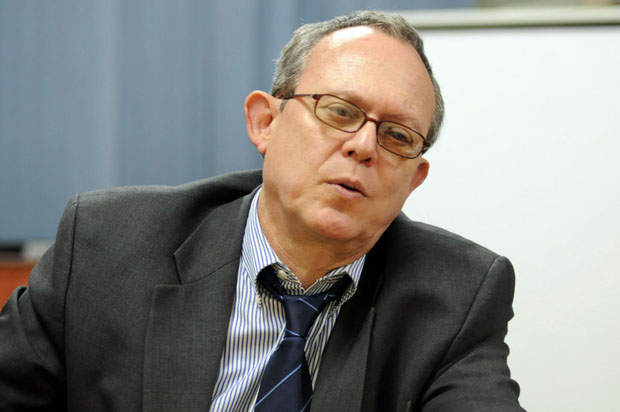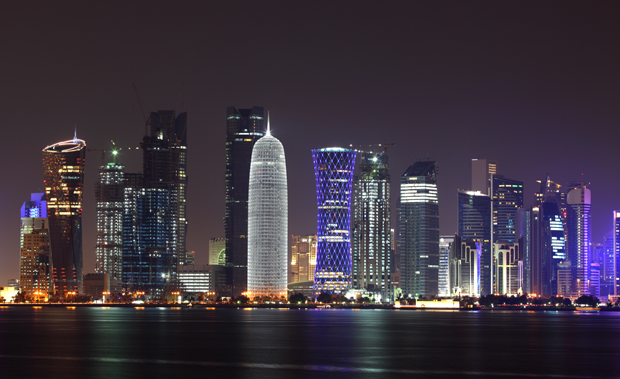26 Mar 2014 | Campaigns
The decision by the UK government to pursue stiffer penalties for grossly offensive communications is a danger to the right to free speech.
Kirsty Hughes, CEO of Index on Censorship, said:
“Index is deeply concerned at the government’s apparent intention to deepen the criminal penalties for grossly offensive communications sent through the internet or social media. Just last year, the then Director of Public Prosecutions Keir Starmer put out a very sensible set of guidelines to limit the number of arrests for social media posts that may be offensive to some but did not constitute a criminal offence. Now we are going backwards. Offence is a subjective concept and if we want to live in a society without offence we will live in a society without free speech.”
Those who participate in cyber bullying and online stalking could face jail time of up to two years after the government showed support for tougher laws on the issue. Those who bombard recipients with explicit text messages also make the list. In fact, according to Justice Secretary Chris Grayling, who spoke with the Evening Standard, the new rules will target any offenders who make victims’ lives a misery by abusing or sexually harassing them online or via mobile devices.
The proposed laws, which would also give prosecutors more time to build their cases against trolls, is a result of Ealing’s MP Angie Bray, who rose the case in parliament of a 14-year old constituent who suffered an onslaught of ‘verbal rape’ via 2,000 text messages over an 18 month period.
25 Mar 2014 | Events

(Image: Mahmoud Illean/Demotix)
Frank La Rue, UN Special Rapporteur on the promotion and protection of the right to freedom of opinion and expression, will be interviewed by Index on Censorship’s CEO Kirsty Hughes, on his experience surrounding digital freedom while in office.
Frank La Rue is a lawyer and current Director of the Centro-American Institute for Social Democracy Studies (DEMOS) in Guatemala. He holds a degree in law from the University of San Carlos, Guatemala, and a postgraduate degree in U.S. foreign policy from Johns Hopkins University. He was also a professor of human rights at the University of Rafael Lavinder de Guatemala. La Rue has worked extensively on human rights issues, and as founding member and Director of the Centre for Legal Human Rights Action (CALDH), he was involved in presenting the first Guatemalan human rights case before the Inter-American Court for Human Rights. Mr. La Rue also brought the first case of genocide against the military dictatorship in Guatemala. As a human rights activist, he was nominated for the Nobel Peace Prize in 2004. La Rue has been serving as the United Nations Special Rapporteur on the promotion and protection of the right to freedom of opinion and expression since August 2008.
Join us for this exciting insight into digital freedom between leaders in the field from 4pm (GMT) on Wednesday 26 March. The event will be live streamed on Google+ here as well as via Index’s YouTube account here. Get involved with your questions prior to the event via Twitter or during the live stream on Google+.
21 Mar 2014 | News and features, Politics and Society, Qatar

Freedom of speech clashing with commercial concerns has been an ongoing theme for many media and internet companies operating on an international stage, but it’s rare that a country’s liberal approach to expression is presented, in itself, as a prime investment opportunity.
Now Qatar, the richest country in the world, is positioning itself as a liberal alternative to the other resource-rich Gulf states – as revealed in an op-ed by the CEO of a premier London-listed Qatari investment fund.
The chairman of the Qatar Investment Fund PLC, Nick Wilson, authored an article this week on ArabianBusiness.com, claiming the country “has a habit of pushing its progressive agenda, to the irritation of its more conservative neighbouring states elsewhere in the Gulf Co-operation Council.”
Qatar Investment Fund manages approximately £200m in assets – investing into Qatari equities and employing dozens of fund managers. Its website trumpets Qatar as one of the worlds fastest growing economies, as well as pointing to its hugely lucrative gas exports.
But in this piece, the investment managers emphasised a different aspect of Qatar – the the “liberal minded” Al Jazeera TV network and an apparent commitment to free speech, especially when compared with its Gulf neighbours.
“We’ve seen the consequences of blocking access to information in other countries of the region.”
“Qatar is a bastion of free speech – and the flow of information should help to create a benign environment for investors.” he added.
The piece also pointed towards progressive women’s rights in Qatar, noted the political unpredictability of the region, but concluded that Qatar was “less frightened of change,” and “safe for business.”
As Wilson mentioned, Qatar now faces an unprecedented rift with the other GCC members – in particular Saudi Arabia, Bahrain and UAE who dramatically withdrew their envoys from Doha recently. He noted that Qatar had not withdrawn their envoys in retaliation, suggestive of their “liberal” tendencies.
But Qatar’s support for the Muslim Brotherhood both in Egypt and the Gulf, has set it contrary to GCC security policy – with UAE and Saudi Arabia having designated the Brotherhood “a terrorist organisation.”
And Yusuf al-Qaradawi, a provocative Islamist preacher and key Muslim Brotherhood member, is based in Doha. He presents a weekly show and sermon on the Arabic version of Al Jazeera, reportedly watched by 20 million viewers.
The outspoken preacher recently incensed the UAE by denouncing the Emirates political policies as “un-Islamic,” in response to an Islamist crackdown orchestrated by UAE’s sophisticated state security apparatus.
Qatar, as Wilson noted in his article, has irked its neighbours by allowing al Jazeera, al Qaradawi and the Muslim Brotherhood to be supported by Qatar’s extensive financial resources.
It now faces potential sanctions from Saudi Arabia, and Bahrain has even called for the GCC to be split up – unless Qatar shuts down the al-Jazeera TV network, ejects al-Qaradawi and stops support for Islamists.
While secretive Qatar is keen to maintain its supportive stance of the Brotherhood, it’s unclear whether freedom of expression comes into play or if there are wider geopolitical considerations at play.
More likely it is the latter – analysts reaction to the Qatar Investment Fund’s glowing appraisal of Qatar’s “liberal” values has been muted.
“Qatar may be a freer society than some of it’s neighbours, but this is hardly a useful measure,” says David Wearing, a PhD candidate and Gulf Expert at SOAS University in London.
“Objectively, it is an autocratic monarchy; not liberal, and certainly not democratic. Some space exists in Qatar for criticism of other regional governments, but not of the Doha regime itself.”
Wearing pointed to the case of Mohammed al-Ajami who was sentenced to fifteen years imprisonment in October 2013, for “insulting the emir.”
Nader Hassan, a professor at the University of South Alabama, thinks the op-ed may fit into a broader PR narrative which is sanitising Qatar’s human rights reputation.
“Qatar has been playing a very skillful public relations game,” he told Index, “portraying itself as a beacon of free speech and press freedom in the region.”
“Compared to its more powerful neighbor, Saudi Arabia, this may be true. However, there are significant restrictions on press freedom in Qatar.
“Al Jazeera, for example, almost never carries any critical pieces on Qatar, such as the abuse of migrant workers.”
Hassan admitted that some Al Jazeera pieces favoured openness and journalistic professionalism- but concluded that calling the network “liberal” was “far from the truth.”
This article was posted on 21 March 2014 at indexoncensorship.org
25 Feb 2014 | Digital Freedom, News and features, United Nations

(Image: Mahmoud Illean/Demotix)
There should be a special United Nations mandate for protecting the right to privacy, says the Frank La Rue, the UN Special Rapporteur on the Promotion and Protection of the Right to Freedom of Opinion and Expression. “I believe that privacy is such a clear and distinct right…that it would merit to have a rapporteur on its own.”
While he pointed out there is some opposition to creating new mandates on economic grounds, he said: “In general If you would ask me, I would say yes, this right deserves a [UN] mandate.” He also called for a coordinated effort from the UN human rights system to deal with the issue of privacy.
The comments came during an expert seminar in Geneva Monday on “The Right to Privacy in the Digital Age” in the aftermath of the mass surveillance revelations.
La Rue said that the right to privacy has not been given enough attention in the past, calling it equal, interrelated and interdependent to other human rights. In particular, he spoke of its connection to freedom of expression and how having or not having privacy can affect freedom of expression.
“Privacy and freedom of expression are not only linked, but are also facilitators of citizen participation, the right to free press, exercise of free opinion, and the possibility of gathering individuals, exercising the right to free association and to be able to criticise public policies.”
He also warned against trying to protect national security at the expense of democracy and human rights, saying: “If we pitch one against the other…I think we’ll end up losing both.”
This echoes the sentiments of his report released in June 2013, which concluded that: “States cannot ensure that individuals are able to freely seek and receive information or express themselves without respecting, protecting and promoting their right to privacy.”
This article was posted on 25 February 2014 at indexoncensorship.org


